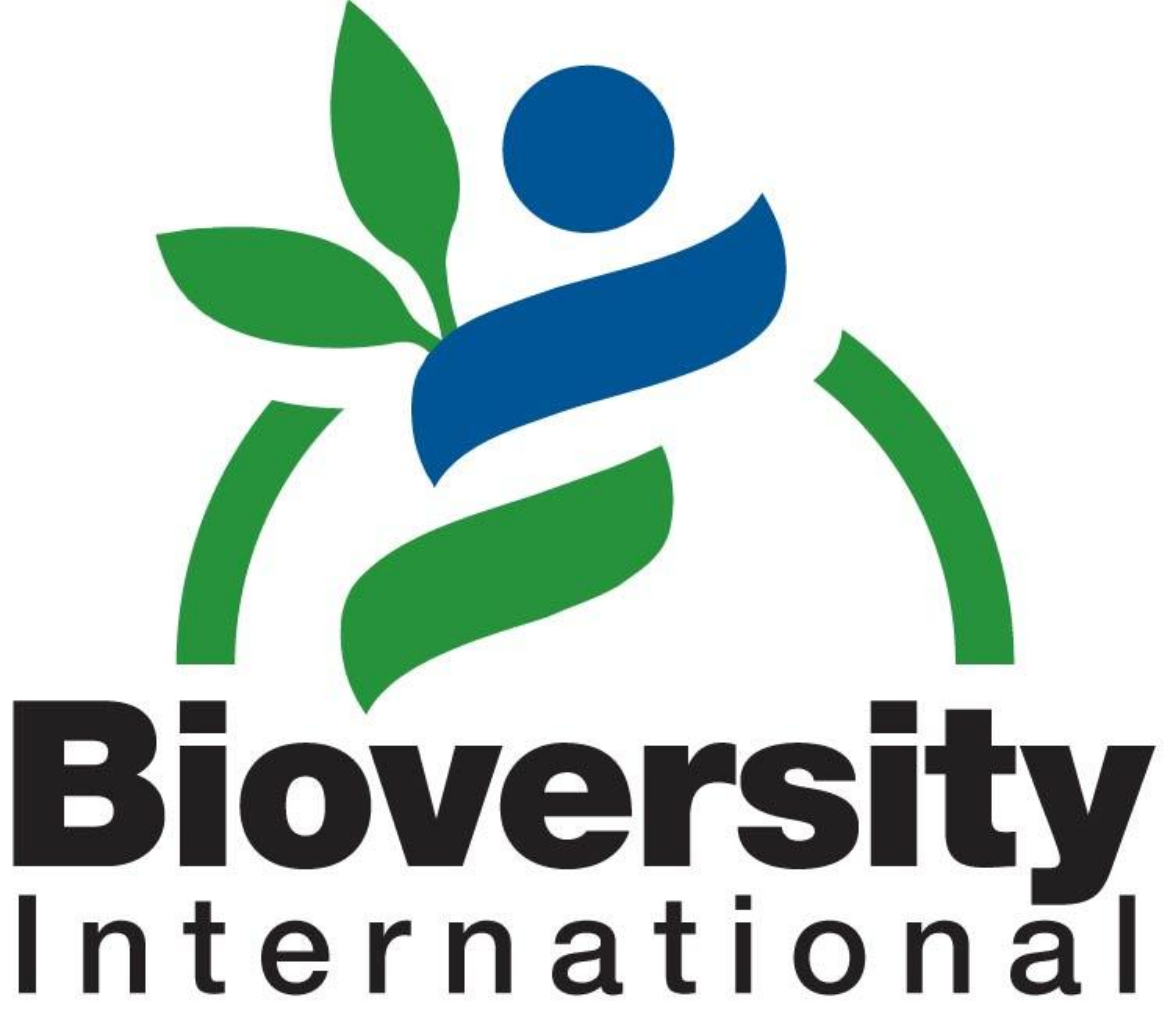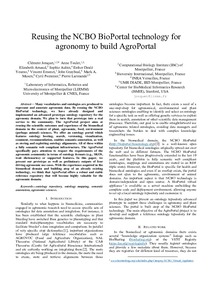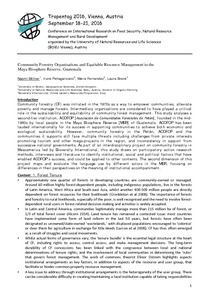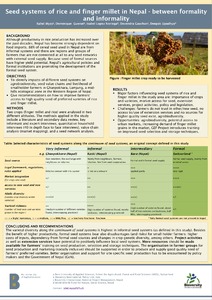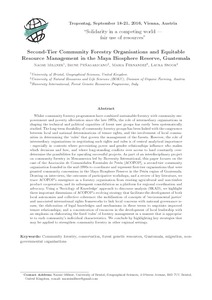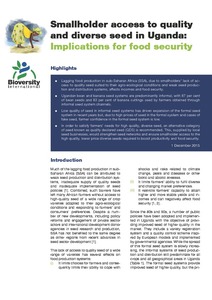Location
Bioversity International is a global research-for-development organization. We have a vision – that agricultural biodiversity nourishes people and sustains the planet.
We deliver scientific evidence, management practices and policy options to use and safeguard agricultural and tree biodiversity to attain sustainable global food and nutrition security.
We work with partners in low-income countries in different regions where agricultural and tree biodiversity can contribute to improved nutrition, resilience, productivity and climate change adaptation.
Members:
Resources
Displaying 66 - 70 of 184Reusing the NCBO BioPortal technology for agronomy to build AgroPortal
Many vocabularies and ontologies are produced to represent and annotate agronomic data. By reusing the NCBO BioPortal technology, we have already designed and implemented an advanced prototype ontology repository for the agronomy domain. We plan to turn that prototype into a real service to the community. The AgroPortal project aims at reusing the scientific outcomes and experience of the biomedical domain in the context of plant, agronomic, food, environment (perhaps animal) sciences.
Second-tier community forestry organisations and equitable resource management in the Maya Biosphere Reserve, Guatemala
Community forestry (CF) was initiated in the 1970s as a way to empower communities, alleviate poverty and manage forests. Intermediary organisations are considered to have played a critical role in the sustainability and equitability of community forest management. This study analyses a second-tier institution, ACOFOP [Asociación de Comunidades Forestales de Petén], founded in the mid-1990s by local people in the Maya Biosphere Reserve [MBR] of Guatemala. ACOFOP has been
Seed systems of rice and finger millet in Nepal, between formality and informality
In Nepal, more than 90% of cereal seed flows from informal systems and there are regions and groups of farmers that are not connected at all to any seed networks with external seed supply. Nepal's agricultural policies and formal institutions are promoting the development of the formal seed system. However, knowledge gaps exist on the opportunities and challenges for smallholder farmers when formal seed systems are becoming accessible.
Second-tier community forestry organisations and equitable resource management in the Maya Biosphere Reserve, Guatemala
Whilst community forestry programmes have combined sustainable forestry with community empowerment and poverty alleviation since the late 1970s, the role of intermediary organisations in shaping the technical and political capacities of forest user groups has rarely been systematically studied. The long-term durability of community forestry groups has been linked with the congruence between local and national determinations of tenure rights, and the involvement of local communities in determining the ‘rules' that govern the management of the forests.
Smallholder access to quality and diverse seed in Uganda: implications for food security
This policy briefs presents smallholder farmers' preferences and major challenges when accessing seed in Uganda. It reflects on the weaknesses of the formal and informal seed production and distribution systems and presents some practical recommendations for putting in place alternative and integrative seed quality control systems that can help fill in the gaps that the formal and informal systems cannot address separately.

